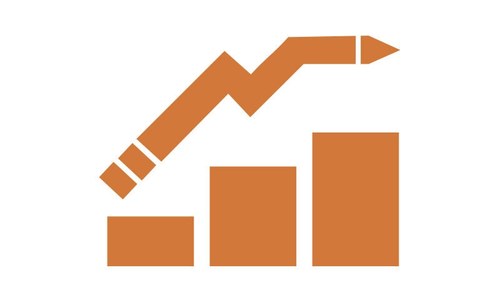MATHEMATICS, often referred to as the language of nature, is arguably the most profound achievement of the human intellect. Why is math so unreasonably effective in explaining the natural world as physicist Eugene Wigner famously argued? For instance, the complex numbers, invented to solve equations without real solutions are crucial for understanding quantum mechanics in modern physics. Similarly, Srinivasa Ramanujan’s work in number theory has astonishing applications in understanding black holes! Physics is littered with many such examples of the fascinating applications of math which was developed ‘merely’ for its own sake.
On the other hand, the utility of math in the social sciences has been more contested and to many it is less promising. Professor Peter Schonemann even flipped Wigner’s famous idea by claiming that math has a reasonable level of ineffectiveness in the social sciences. Unlike in physics, economics is not governed by simple and elegant equations. Often, the pursuit of mathematical elegance is disrupted by the inconvenient interference of human whim, fundamental uncertainty, and the sheer complexity of social and economic interaction.
However, I would argue as do many other economists that math nevertheless has an indispensable role to play in economics. Mathematical formalism imposes the sort of discipline and incisive clarity that remains enviable otherwise. This is because mathematical argumentation necessitates explicit assumptions and logically flawless inferences, helping us overcome cognitive biases and logical fallacies. Math also makes economics portable, compact, and mobile across cultures, languages, and academic disciplines. In addition, math allows us to represent the inherently quantitative nature of claims in economics, which deals with prices and quantities. Such models enable us to draw precise causal inferences by creating artificial laboratories, otherwise infeasible in the social sciences. This centrality of mathematics in economics is not reflected in the curricula, expectations of young students and the vision of economics offered by Pakistan’s academic institutions.
Read: Why are Pakistani students deplorable at maths and science?
There are many facets to the mathematical impoverishment of economics in Pakistan. One problem imposes no culpability on the economists since the quality of mathematical research as well as instruction is generally quite sub-standard. Thus, even when we have joint programmes in economics and mathematics, the mathematical foundations of students remain dilapidated.
Students who choose economics at university neither have the required mathematical background, nor the patience and curiosity to learn it.
Moreover, typically the students who choose economics at university neither have the required mathematical background, nor the patience and curiosity to learn it. Often, many students are under the false impression that if they are mathematically challenged, then economics, accounting, and business studies etc, unfortunately often clubbed together, are their natural choices. Student expectations are distorted by the high school economics curricula such as that of A levels, which makes use of no math apart from rudimentary arithmetic. It is also not helpful that schools/colleges fail at communicating to prospective students that an interest in mathematics is not an option but a requirement for pursuing economics at university.
Meanwhile, our universities, including the best ones happily cater to the large demand for an economics education, devoid of mathematics. In fact, often the content of courses is watered down to accommodate mathematical deficiencies of students. While this is a lucrative market strategy to satisfy students as customers, I believe that it is a disservice to both the students and the discipline of economics. Such compromised education misleads students, leading to poor preparation for graduate study by creating a sharp discontinuity between undergraduate studies at home and graduate studies abroad.
Furthermore, many of our economists do not make the effort to make their courses mathematically rigorous. Some of this reluctance is explained by student incompetence and lack of ability of some economists to deliver such content. Often, economists lethargically consider mathematical tools to be redundant in their classrooms, believing they can be picked up at graduate level or learned in math classes. While teaching mathematics is primarily not the responsibility of economists, using mathematical tools to teach an authentic version of economics surely is.
Moreover, there is an ideological dimension. Some economists believe that mathematics is neither the most interesting nor the most non-trivial dimension of economics. This view is also shared by some prominent academics such as heterodox economist Ha-Joon Chang who argued that 95 per cent of economics can be explained without using any math at all. Hence, it is believed that by excluding mathematical rigour, one is not excluding the essence of economics. This neglect of mathematical tools leads to an emaciated version of economics taught to students.
A deep appreciation of many economic insights will remain elusive to many unless mathematics plays its lucid and illuminating role. Contrary to popular perception, mathematics facilitates and simplifies understanding rather than obfuscating it. As Harvard economist Dani Rodrik puts it, “economists use math not because they are smart but because they are not smart enough”. For many of us who perhaps unlike Keynes or Hayek are ‘not smart enough’, the gateway to deep economic understanding is impossible to cross without the diligent and generous assistance of mathematics.
A popularisation of the connection between economics and mathematics in our schools is needed so that young students can make informed choices. I also propose a more seamless integration between economics and mathematics at universities so that we can train careful and rigorous thinkers. We do not want economists merely capable of posturing and concocting elaborate word salads but those who can combine empirical evidence with mathematical models to deliver concrete theoretical and policy insights. This transformation requires a change in mindset through an acceptance of the necessity of mathematical models in not just the natural sciences but also the social sciences, especially in economics.
The writer is a research fellow at PIDE, Islamabad and has a MPhil in economics from the University of Oxford.
Published in Dawn, September 13th, 2021



































